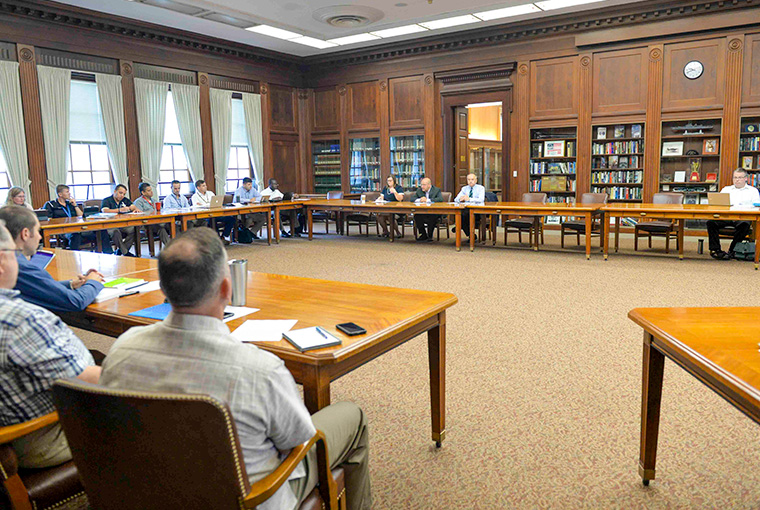U.S. Naval War College Workshop Addresses Europe’s Outlook Amid Great-Power Competition

NEWPORT, R.I. -- How will Europe’s nations fare in the new great-power competition between the United States and China, with an increasingly aggressive Russia in the wings?
That was the overarching question posed Aug. 23 at a U.S. Naval War College workshop featuring guest scholars Stacy Closson and Andrew Michta.
Closson is a global fellow at the Woodrow Wilson Center’s Kennan Institute and an adjunct professional lecturer at American University’s School of International Service. Michta, formerly a Naval War College faculty member, is dean of the George C. Marshall Center’s College of International and Security Studies.
Professor Nikolas Gvosdev organized the workshop for students, as part of the Captain Jerome E. Levy speakers series.
Closson suggested that China and Russia are working to remake the global order to create alternatives to institutions led by the United States.
“For an international audience, Russia shows a very strong face to democracies and thrives on posturing against the West. This includes interference and destabilizing,” she said. “But the Russian domestic audience is less and less supportive of this sort of foreign adventurism.”
For China, Closson said, trade and prestige in the eyes of European democracies is crucial as it pursues the Belt and Trade Initiative that would make other nations dependent on China for infrastructure funding.
“Whereas Russia pursues interference, China pursues interdependence.”
Michta said he sees Russia and China working together – not in an alliance, but in an alignment based on a shared interest in targeting U.S. power in Europe.
With the Belt and Road Initiative, China would like to rewrite the basic blueprint of how the United States interacts with Europe, said Michta, who noted that these are his views and not those of his employer.
“The goal in a nutshell, in my view, is to build a supply chain across Eurasia, protected by its other assets, and have a sufficient enough navy to push us away as far as possible in the Indo-Pacific,” he said. “And then transform Europe from being the entry point for U.S. power into Eurasia into a terminal (Western) point for China’s access.”
For more information about the U.S. Naval War College’s China Maritime Studies Institute and Russia Maritime Studies Institute, please see our research centers homepage: https://usnwc.edu/Research-and-Wargaming/Research-Centers.
